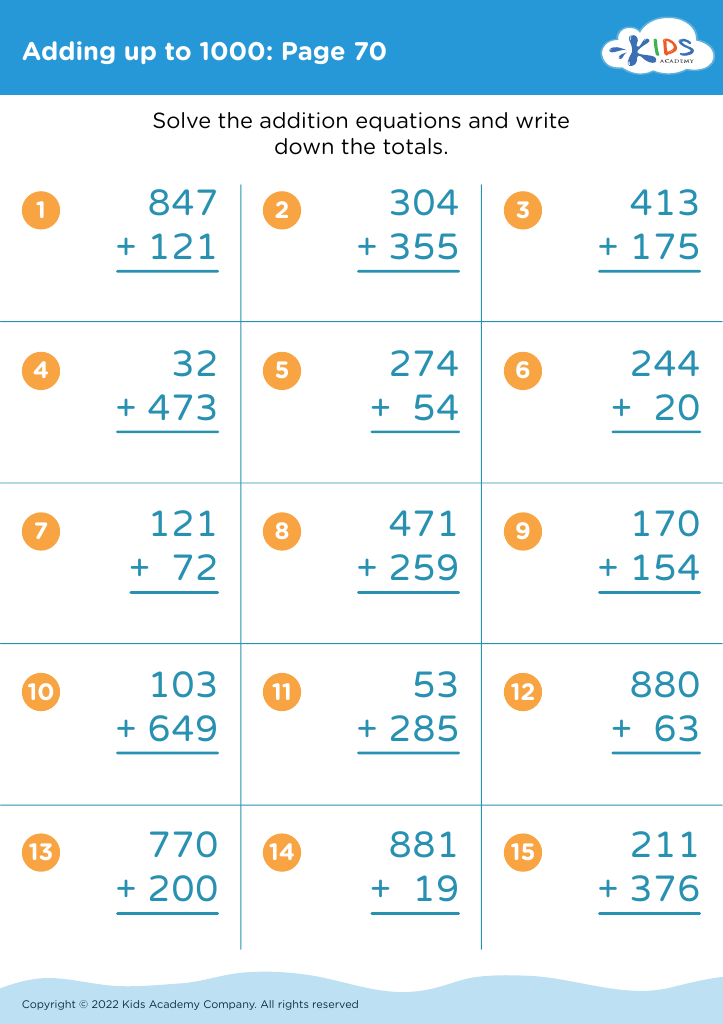Problem-solving practice Adding up to 1000 Worksheets for Ages 6-9
3 filtered results
-
From - To
Welcome to our "Problem-Solving Practice Adding Up to 1000 Worksheets" designed for ages 6-9! These engaging resources help young learners develop vital math skills while enhancing their problem-solving abilities. Each worksheet features fun, age-appropriate exercises that encourage children to practice addition beyond 1000, fostering critical thinking and reasoning skills. Our carefully crafted activities stimulate a love for mathematics, promote independent learning, and build confidence in numerical comprehension. Ideal for classroom use or at-home practice, these worksheets ensure a solid foundation in mathematical concepts. Discover a wealth of imaginative and interactive challenges that make learning addition exciting for your child!
Problem-solving practice, particularly activities that involve adding up to 1000, is crucial for children aged 6 to 9, as it lays a foundational understanding of mathematics that extends beyond mere computation. For parents and teachers, fostering this skill is essential because it enhances critical thinking, increases number sense, and promotes confidence in math abilities.
At this age, children are forming essential cognitive skills and learning to approach complex challenges. Engaging them in problem-solving tasks that challenge them to add to 1000 encourages not just numerical proficiency but also the development of strategies that can be applied in varied situations, including real-life problems. It teaches them to break down larger numbers into manageable parts, encouraging logical reasoning and perseverance in the face of difficulty.
Moreover, understanding how numbers fit together reinforces concepts needed for higher-level math, promoting long-term academic success. Additionally, collaborative problem-solving activities foster communication and social skills, which are crucial as children learn to articulate their thought processes and work with peers.
Ultimately, investing in problem-solving practice aids in building a positive attitude towards mathematics, cultivating lifelong learners who are not only capable but enthusiastic about tackling mathematical challenges.
















